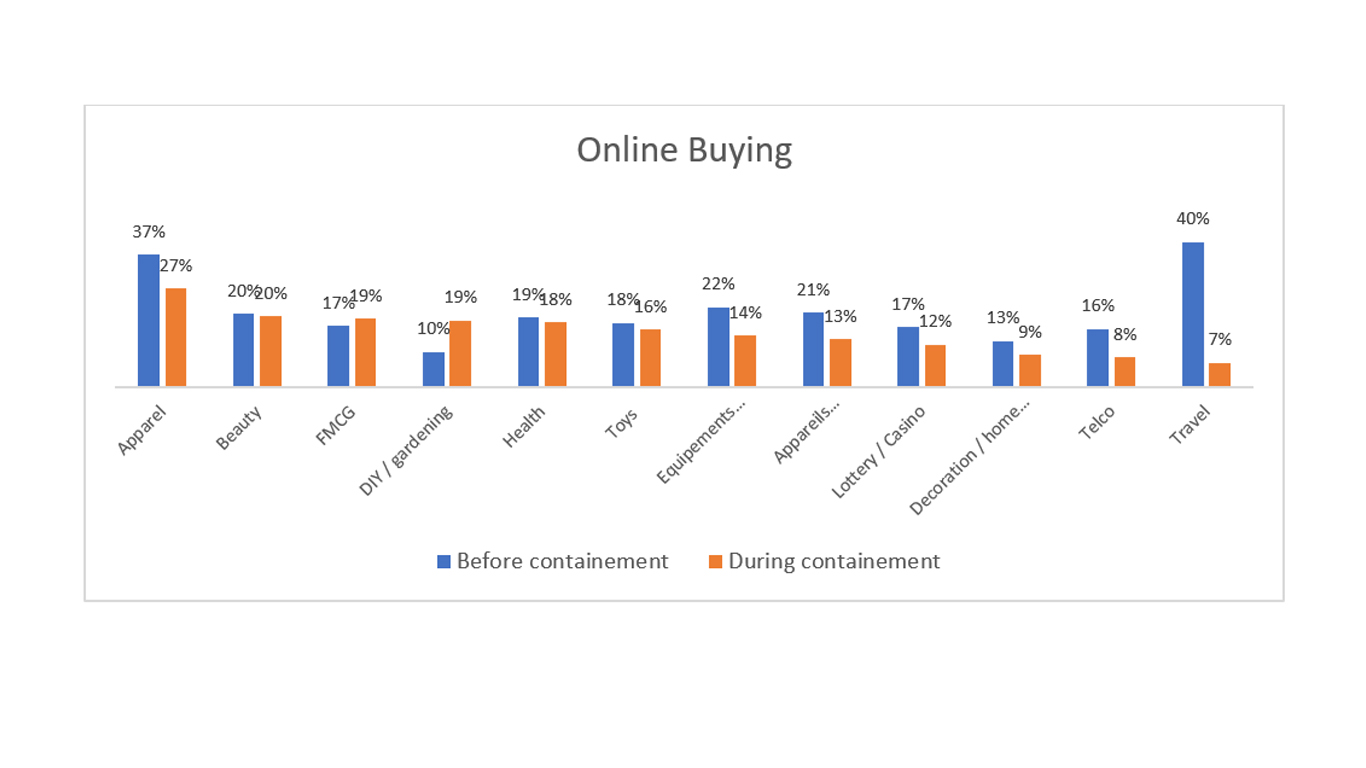 As the first measures are being taken to ease the lockdown, what is the current mood in Belgium? How do Belgians view their personal situation? In what ways has the COVID-19 crisis significantly impacted their trust in institutions, their consumption habits and their future projects? This unprecedented period has also generated many social initiatives and greater collective responsibility. Some companies have joined in with this citizen movement. How do Belgians feel about this trend and how can their aspirations be reflected in those of economic players over the long-term?
As the first measures are being taken to ease the lockdown, what is the current mood in Belgium? How do Belgians view their personal situation? In what ways has the COVID-19 crisis significantly impacted their trust in institutions, their consumption habits and their future projects? This unprecedented period has also generated many social initiatives and greater collective responsibility. Some companies have joined in with this citizen movement. How do Belgians feel about this trend and how can their aspirations be reflected in those of economic players over the long-term?
These are the questions IPG Mediabrands wanted to provide accurate and quantified answers to via a study carried out with IVOX. The study involved nearly 1,000 Belgians during the last two weeks of April.
The first noteworthy observation is the return of a degree of enjoyment. Noelle Stevens, Trade Marketing Director, states that “whereas 7 out of 10 Belgians claim they are living through the lockdown comfortably, 39% are waiting for the lockdown to end in order to live fully again, since no one can currently foresee what the future holds.” 52% are being more cautious and will take every measure possible to avoid social contact and favour teleworking and online purchases, while avoiding mass transit and social gatherings such as concerts and festivals. This signals a return to a certain level of normality driven, in particular, by pragmatism, without too much celebration.
How long will the economic crisis last?
 Faced with the current situation, many are worried and fear that an economic crisis which could last many months, or perhaps years, is taking hold. Belgians are divided on this question. One third of Belgians feel that we will regain economic stability next year. On the other hand, 40% are doubtful of an improvement before 2022 or even later.
Faced with the current situation, many are worried and fear that an economic crisis which could last many months, or perhaps years, is taking hold. Belgians are divided on this question. One third of Belgians feel that we will regain economic stability next year. On the other hand, 40% are doubtful of an improvement before 2022 or even later.
Finally, 21% are convinced they will be directly affected by the economic slowdown and are planning to wait before considering longer-term projects. According to Cédric Tytgat, Chief Strategy Officer, “A consumer-driven recovery therefore seems uncertain in the short and perhaps even medium term.”
Also, according to our survey, 6 out of 10 Belgians were planning to make major purchases (real estate, renovation work, vehicle, etc.) before the lockdown and 43% of them (50% of Dutch-speakers compared with 34% of French-speakers) still intend to. The situation presents a mixed picture.
What are our political expectations?
The EU has been the biggest loser from the pandemic. 87% of Belgians feel that European institutions did not intervene enough to manage the health crisis. The consequence of this mistrust is a desire for more sovereignty for the Member States (90% of respondents). Two-thirds of those interviewed wished that Belgium could manage its borders more freely and half think that our government should nationalise the Kingdom’s flagship industries.
However, the Belgian government has not benefited from this dissatisfaction with Europe, since only 33% of the population approves of the decisions taken by the Ministers and 34% are sceptical about the transparency of the information coming from our government.
Economic and political uncertainty are on the horizon in the coming weeks and months.
Consumers adapt
Many have taken note of the explosion of e-commerce during the lockdown period. Belgians reported that they increased their online purchases, (without specifying the amount spent) for DIY and gardening products (87%) and fast-moving consumer goods (FMCG) (+12%). That said, there was no significant desire to continue the increased purchasing after the lockdown.
Paradoxically, there was a contraction in leisure-related sectors, such as board games and toys (-11%), clothes and accessories (-25%), computer equipment and household appliances (-35%).
Cédric Tytgat feels that “The positive and negative changes in in e-commerce are currently connected to purely external factors and nothing points to a major boom in online purchases to the detriment of physical purchases in the near future. This would be even more true if COVID-19 were to disappear quickly. There is a clear difference between hoping for a trend and reality.”
The increased traffic experienced by certain “non-essential” businesses upon reopening Monday demonstrates the impatience of some Belgians to resume shopping.

COVID-19 has accelerated change
However, their impatience does not mean they are unmindful. Reopening shops during the gradual easing of the lockdown requires a set of practical measures to alleviate consumers’ safety concerns. As a result, customer service, payment methods, premises and security must be thoroughly rethought in order to continue providing an optimal consumer experience in terms of service and the time spent shopping.
 However, it will take weeks or even months before we see a return to normalcy. That’s why multichannel marketing is crucial for the retail sector. It’s necessary in order for online shopping to coexist with brick-and-mortar shopping, which is more restricted than normal, as a complement or as an alternative. It goes without saying that the players who will emerge with the upper hand will be those whose online business is completely integrated, i.e. autonomous, agile and complementary to their traditional points of sale.
However, it will take weeks or even months before we see a return to normalcy. That’s why multichannel marketing is crucial for the retail sector. It’s necessary in order for online shopping to coexist with brick-and-mortar shopping, which is more restricted than normal, as a complement or as an alternative. It goes without saying that the players who will emerge with the upper hand will be those whose online business is completely integrated, i.e. autonomous, agile and complementary to their traditional points of sale.
“We know that things will be complicated in the coming weeks and could result in people trying out different brands, which are more competitive but better prepared, and thus in changing their habits, in particular if the online experience is unsatisfactory,” notes Noelle Stevens.
Communicate, however…
The COVID-19 crisis has led some advertisers to shelve their campaigns and others to adapt their marketing communication to a much more socially-focused image than usual. How do Belgians perceive this shift? Although some view it as opportunistic (16%), most (55%) have responded more favourably to these messages, which highlight the companies’ social responsibility.
Belgians see the following collective actions as priority subjects companies should pay greater attention to, and which do not directly concern the financing of research and healthcare: producing locally (31%), following climate standards (19%), fighting poverty (16%), supporting the real economy (14%) and producing sustainable goods (11%).
While the social responsibility of companies is, without a doubt, an important communication focus which influences Belgians, it is clear that for a majority of them, the true vehicle for conversion remains the intrinsic qualities of each brand. Qualities which are, of course, part of everyone’s everyday lives and which are everyone’s values and concerns. Now, more than ever. Without a doubt.
